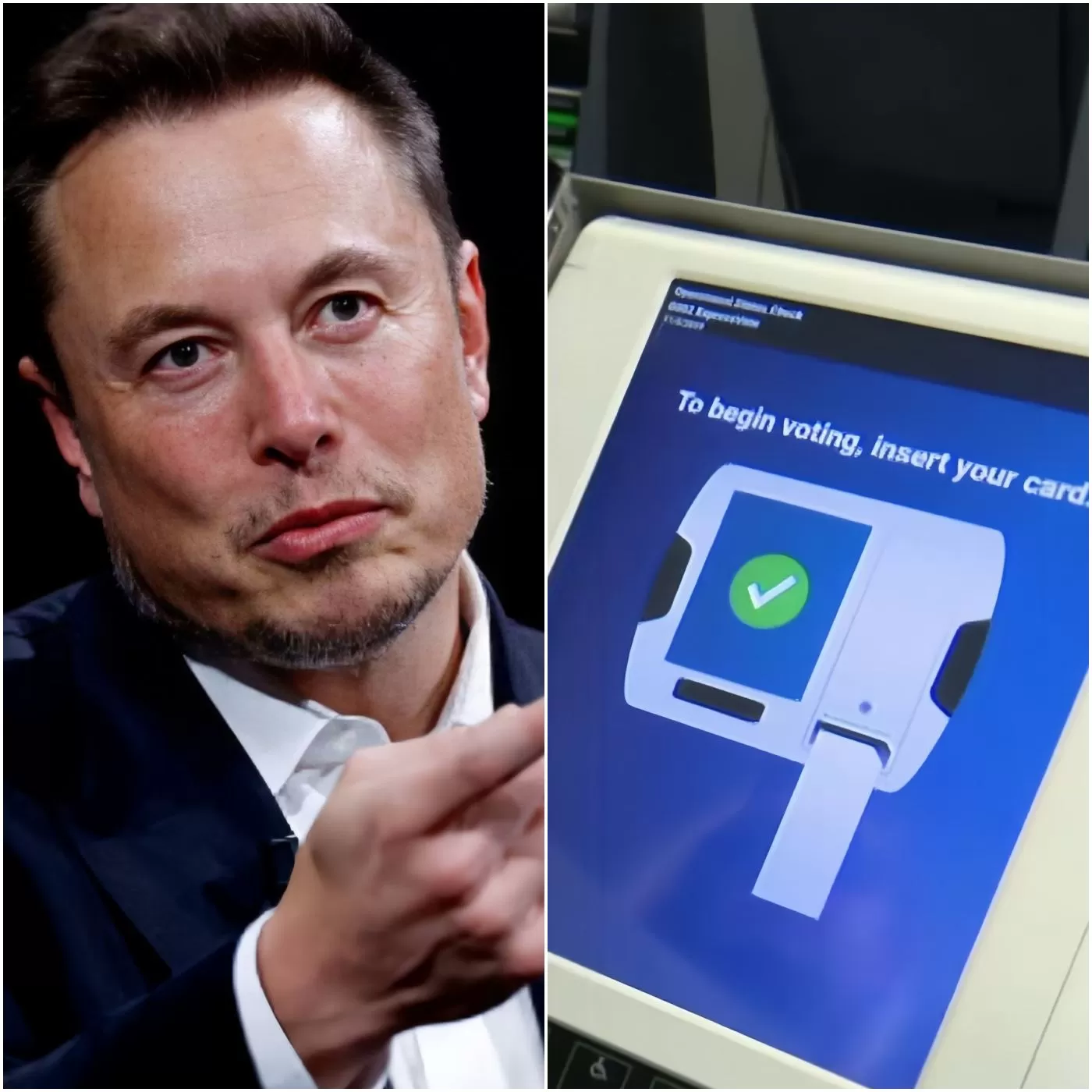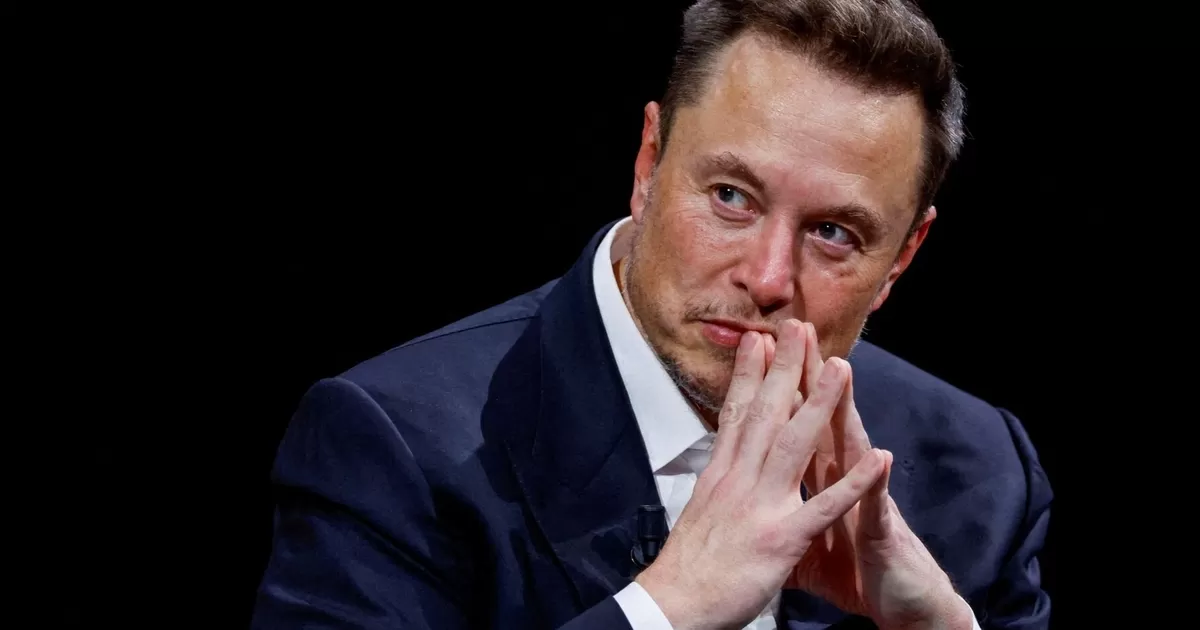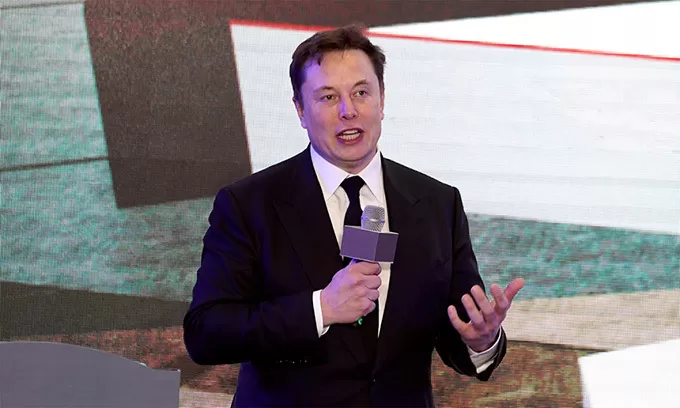In a move that has sparked widespread debate, tech entrepreneur and X (formerly Twitter) owner Elon Musk has publicly called for the elimination of electronic voting machines in the U.S. electoral system. Musk, known for his bold opinions on technology and governance, argues that removing electronic voting machines is necessary to ensure election integrity and transparency.
Elon Musk has long been a vocal advocate for technological innovation, but when it comes to voting systems, his views diverge sharply. In a recent series of tweets, Musk expressed serious concerns about the security and reliability of electronic voting machines, suggesting that they are vulnerable to hacking, manipulation, and technical failures.
Musk tweeted, “In a world where cybersecurity threats are increasingly sophisticated, relying on electronic voting machines is risky. We need a more transparent and secure way of voting.” His call for change has reignited discussions about the security of voting technology, particularly in light of past controversies surrounding election integrity in the United States.

As part of his proposed solution, Musk advocates for a return to paper ballots. He believes that paper ballots provide a more secure and verifiable means of voting compared to electronic systems. “Paper ballots are not hackable. They provide a physical trail that can be audited, ensuring that every vote is counted accurately,” Musk tweeted.

This view aligns with that of some election security experts who argue that paper ballots, combined with proper auditing processes, offer the best defense against potential tampering or technological glitches. Musk’s push for paper ballots has received mixed reactions, with some supporting the idea and others raising concerns about the practicality of eliminating electronic systems entirely.
Musk’s call to eliminate electronic voting machines has garnered attention from political figures on both sides of the aisle. Some lawmakers and election officials have expressed support for Musk’s concerns, citing recent cybersecurity threats as justification for reevaluating the reliance on electronic voting systems.
However, others argue that the solution is not to eliminate electronic voting machines but to improve their security through updated software, stronger encryption, and better oversight. Critics also point out that removing electronic voting machines could lead to logistical challenges, particularly in large elections where millions of votes are cast.
Election security experts have weighed in on the debate, acknowledging the risks associated with electronic voting systems but cautioning that a complete overhaul may not be necessary. Instead, they advocate for a hybrid system where electronic voting machines are used but supplemented by paper ballots as a backup.
Elon Musk’s comments have reignited a broader conversation about the future of voting technology in the United States. As cybersecurity threats evolve, the question of how to secure elections is becoming increasingly urgent. While some advocate for a return to simpler methods, others argue that technological innovation can actually improve election integrity if properly implemented.
In the wake of Musk’s statements, election officials may face growing pressure to reevaluate their use of electronic voting machines. Some states have already begun implementing changes, such as mandating paper backups for electronic votes, while others continue to rely solely on electronic systems.
Musk’s call to eliminate electronic voting machines comes at a time when election security is a hotly debated topic. Following allegations of voter fraud in recent elections, public trust in the electoral process has been called into question. Musk’s comments have resonated with some who believe that the current system is flawed and vulnerable to interference.

On the other hand, many officials and experts argue that existing electronic voting systems can be secure if managed correctly. They point to ongoing efforts to improve election security, including increased oversight, regular audits, and stronger cybersecurity protocols.
Elon Musk’s call for the elimination of electronic voting machines has sparked a nationwide debate about the future of voting technology in the United States. His concerns about the vulnerability of electronic systems to hacking and manipulation have resonated with many, but others caution that a complete overhaul of the voting system may not be necessary.
As discussions about election security continue, the push for paper ballots and more transparent voting processes may gain traction. Whether or not Musk’s vision of eliminating electronic voting machines will come to fruition remains to be seen, but one thing is clear: the conversation about how to secure the future of elections is far from over.




